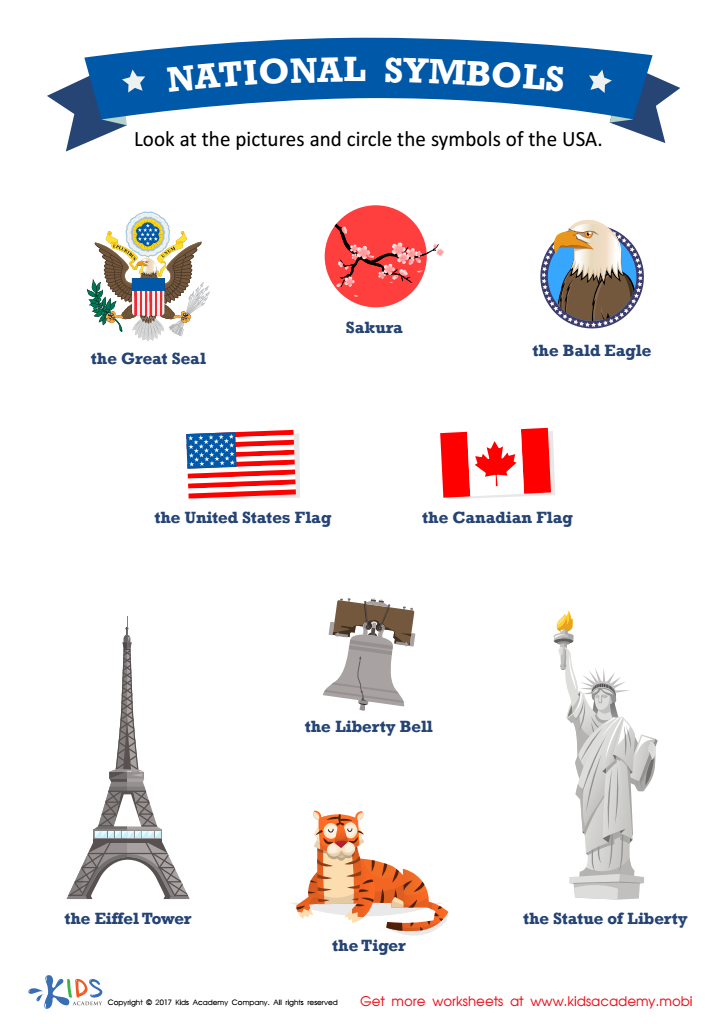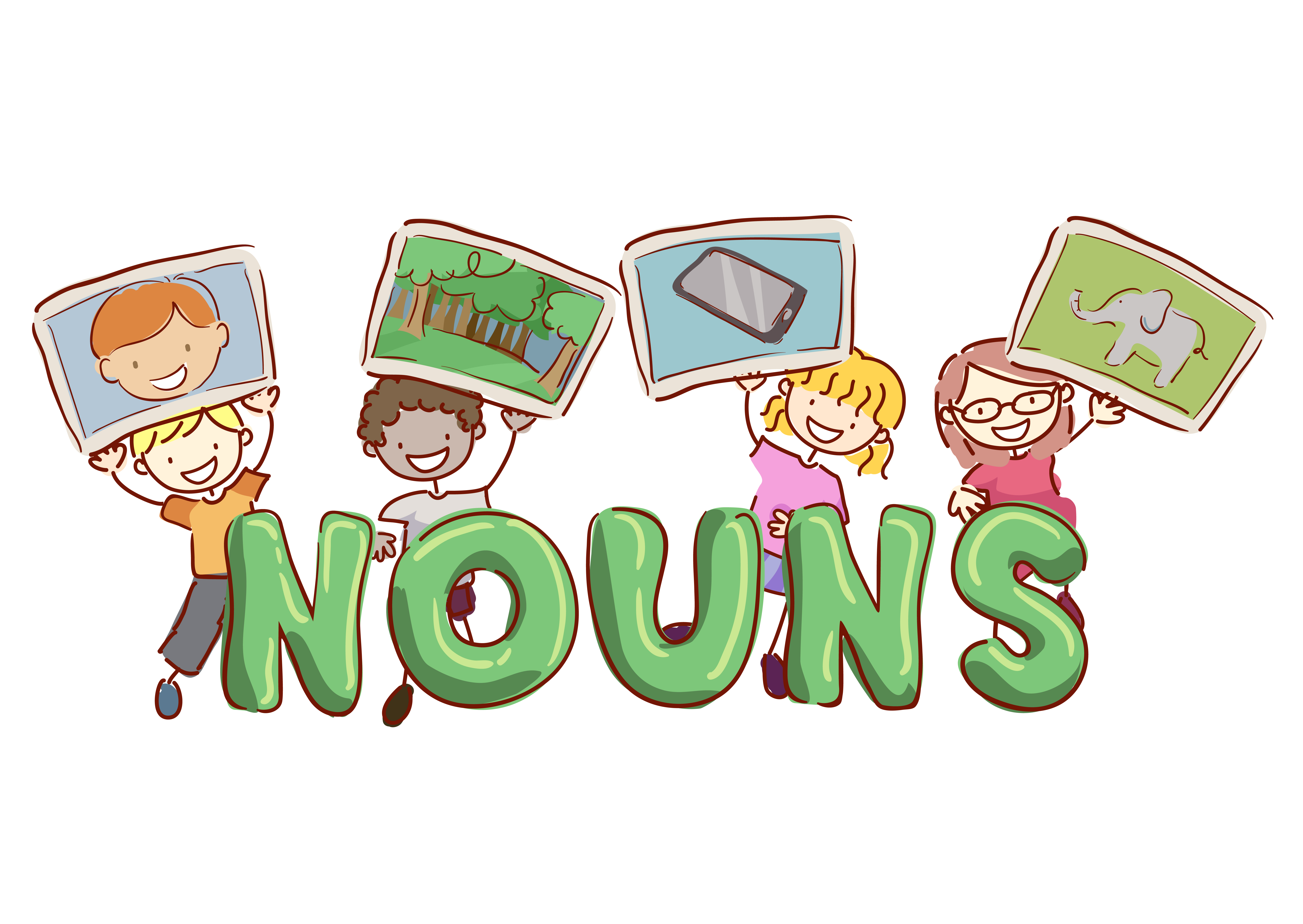Geography knowledge Normal Worksheets for Ages 5-8
27 filtered results
-
From - To
Our "Geography Knowledge Normal Worksheets for Ages 5-8" are designed to ignite young learners' curiosity about the world around them. These engaging and age-appropriate worksheets cover essential geography concepts, including map skills, continent recognition, and understanding landmarks. With vibrant illustrations and interactive activities, children will enjoy exploring different cultures, environments, and geographical features. Ideal for home or classroom use, these worksheets promote critical thinking and enhance spatial awareness. Encouraging kids to develop a strong foundation in geography, they are perfect for fostering a love of learning while meeting educational standards. Dive into the exciting world of geography and watch your child's knowledge expand!
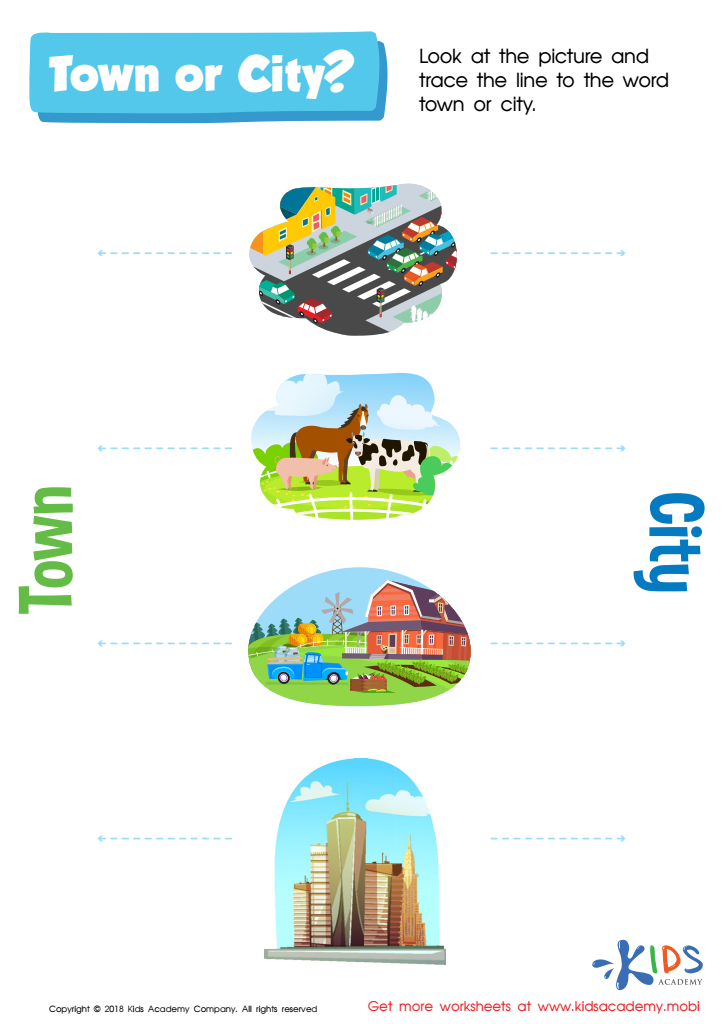

Town or City? Worksheet
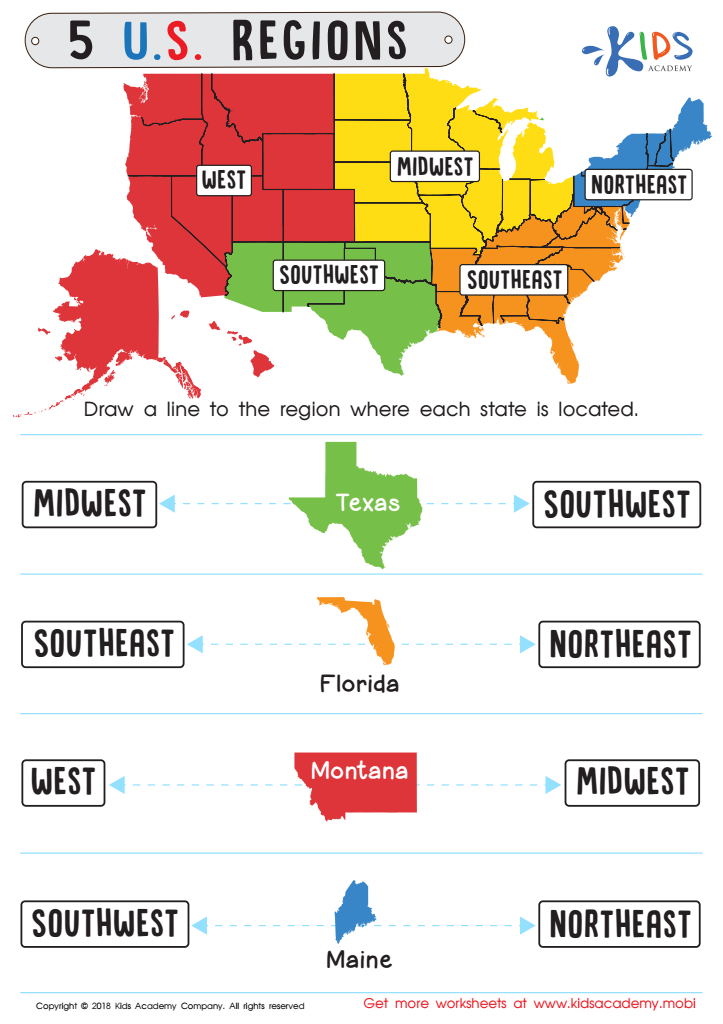

5 U.S. Regions Worksheet
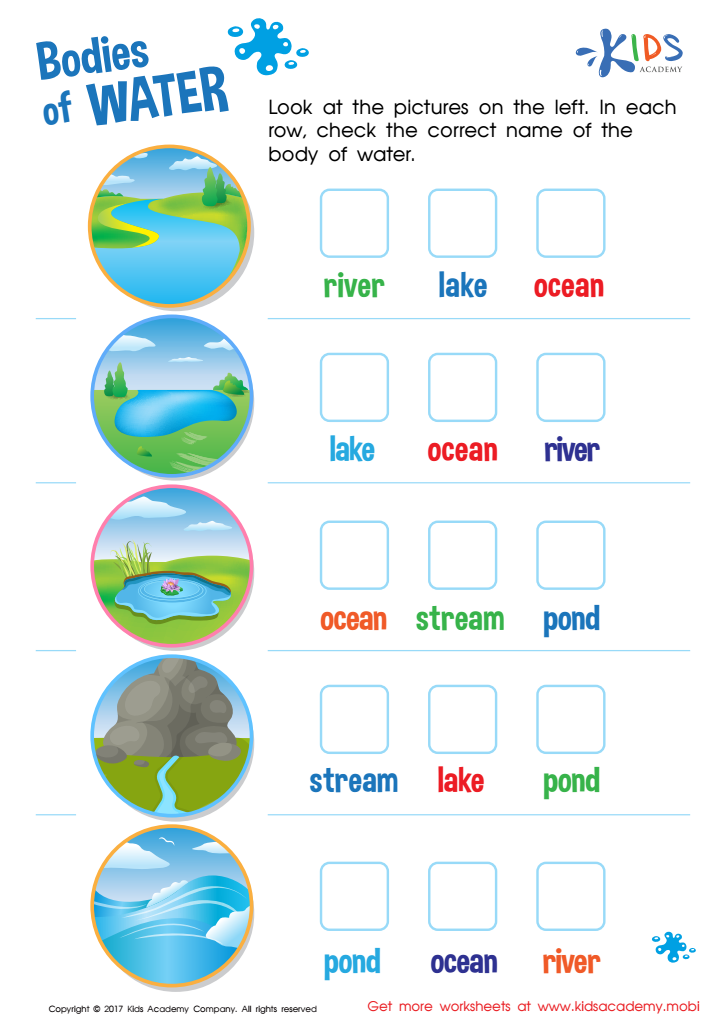

Bodies of Water Worksheet
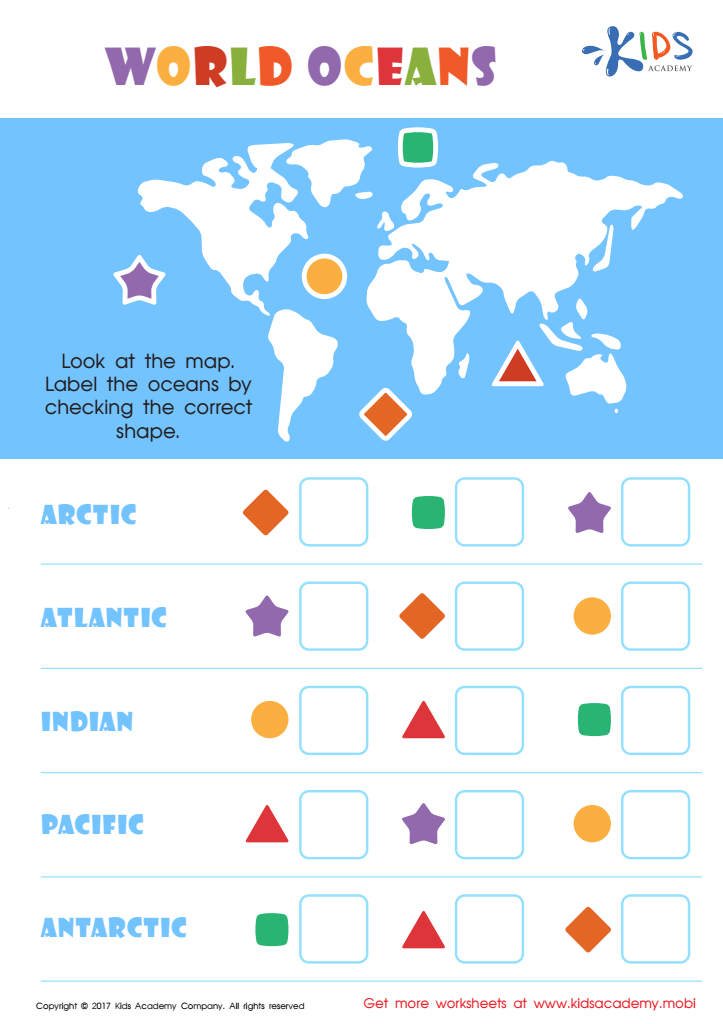

World Oceans Printable
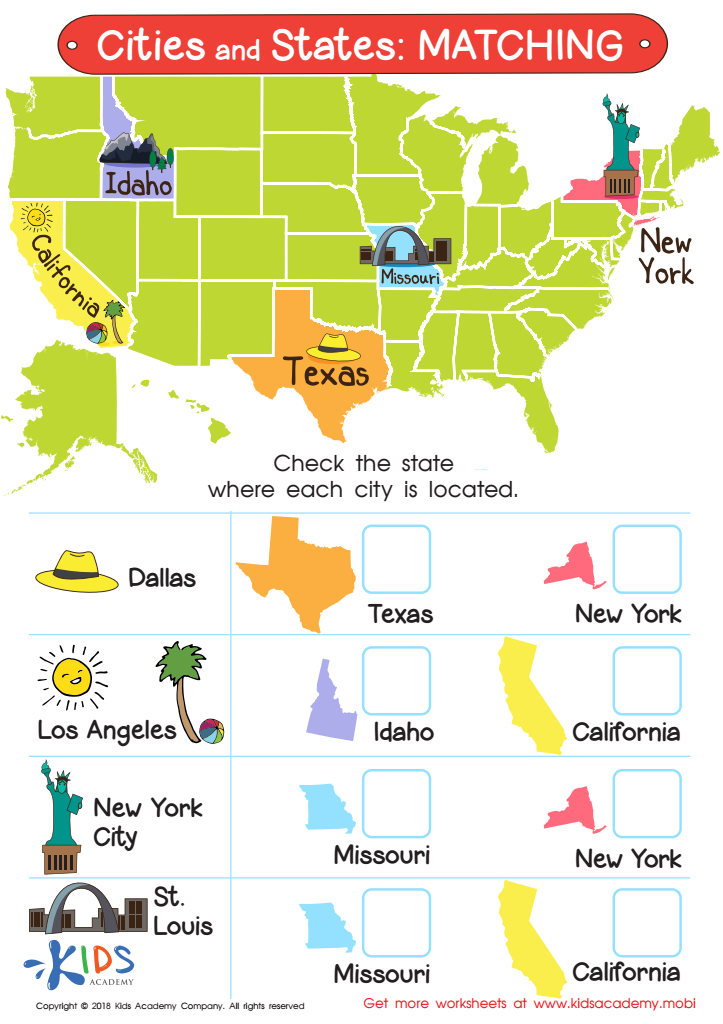

Cities and States: Matching Worksheet
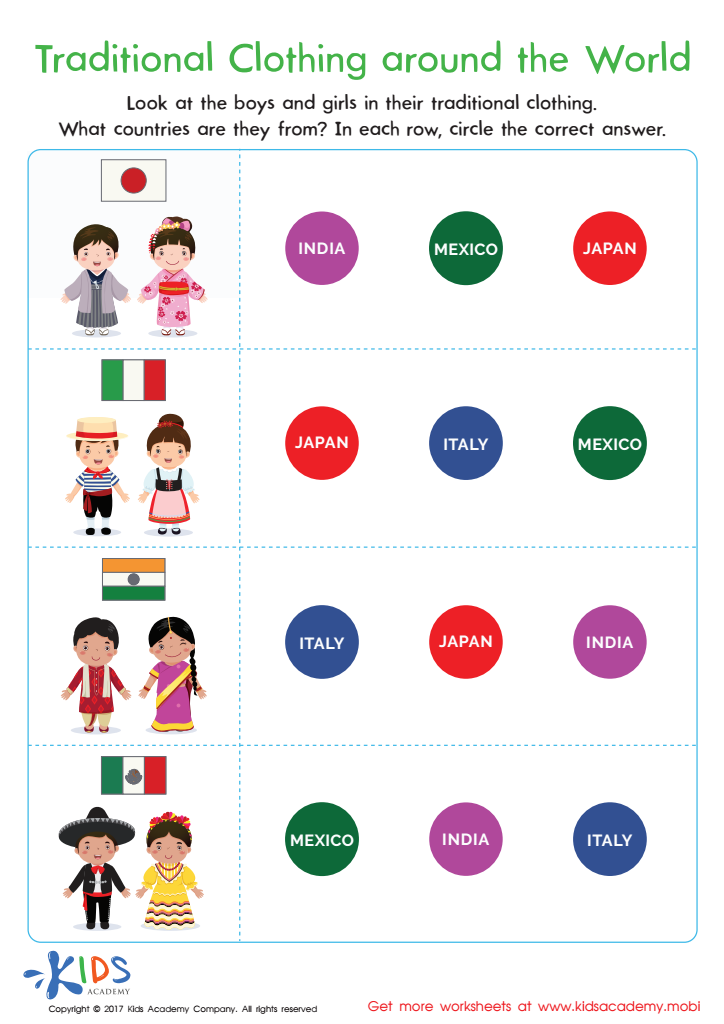

Traditional Clothing Worksheet
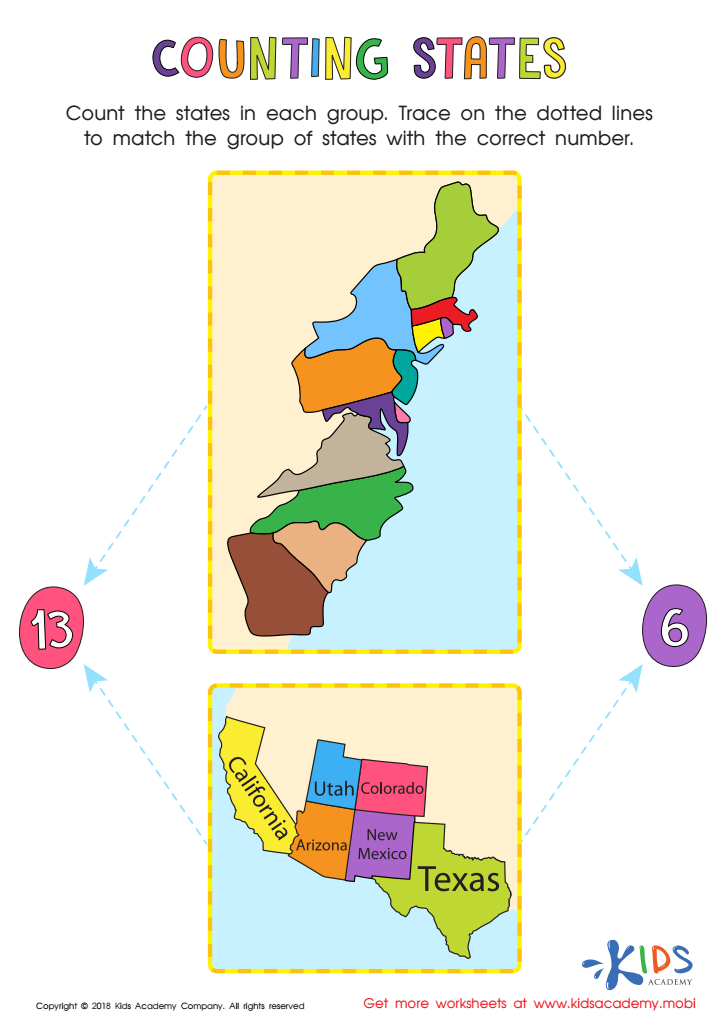

Counting States Worksheet
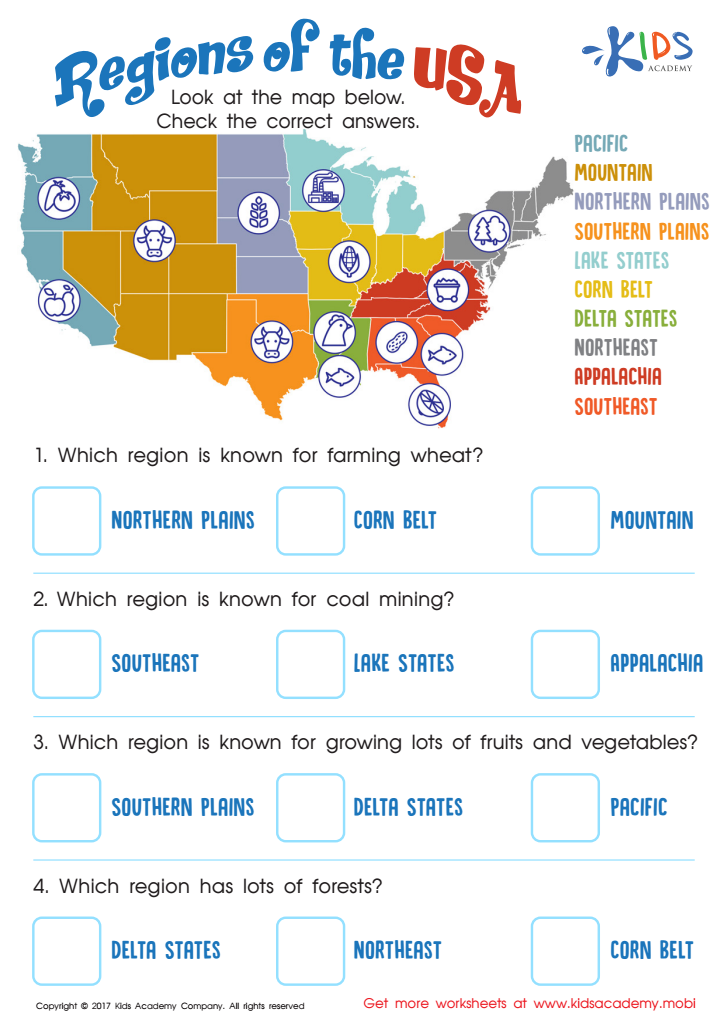

Regions of the USA Worksheet
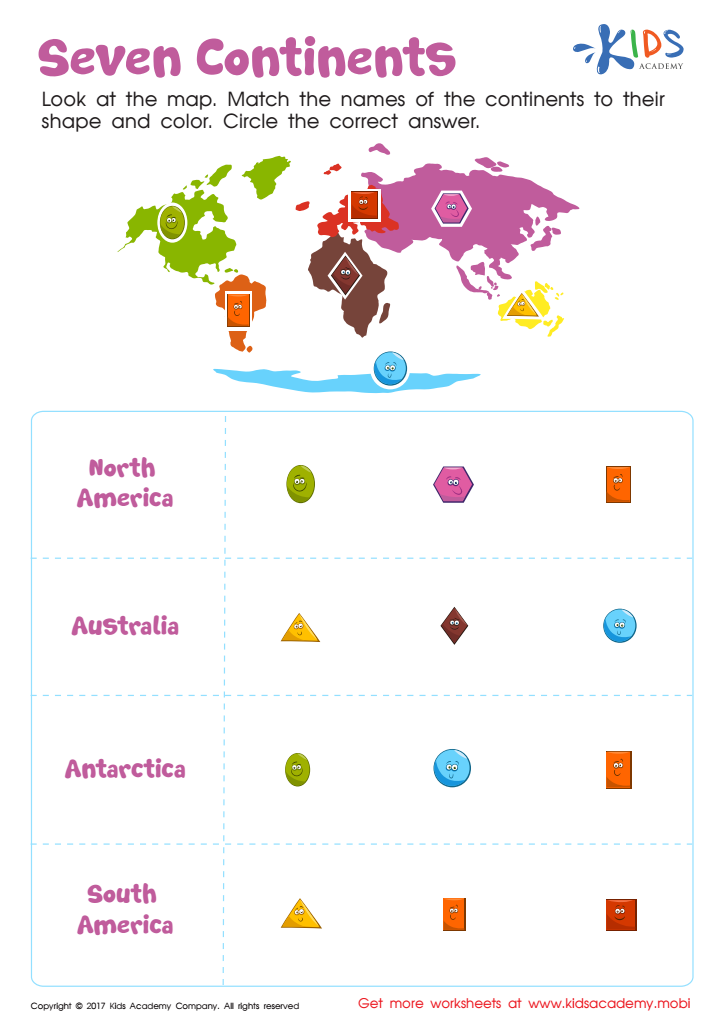

Seven Continents Worksheet
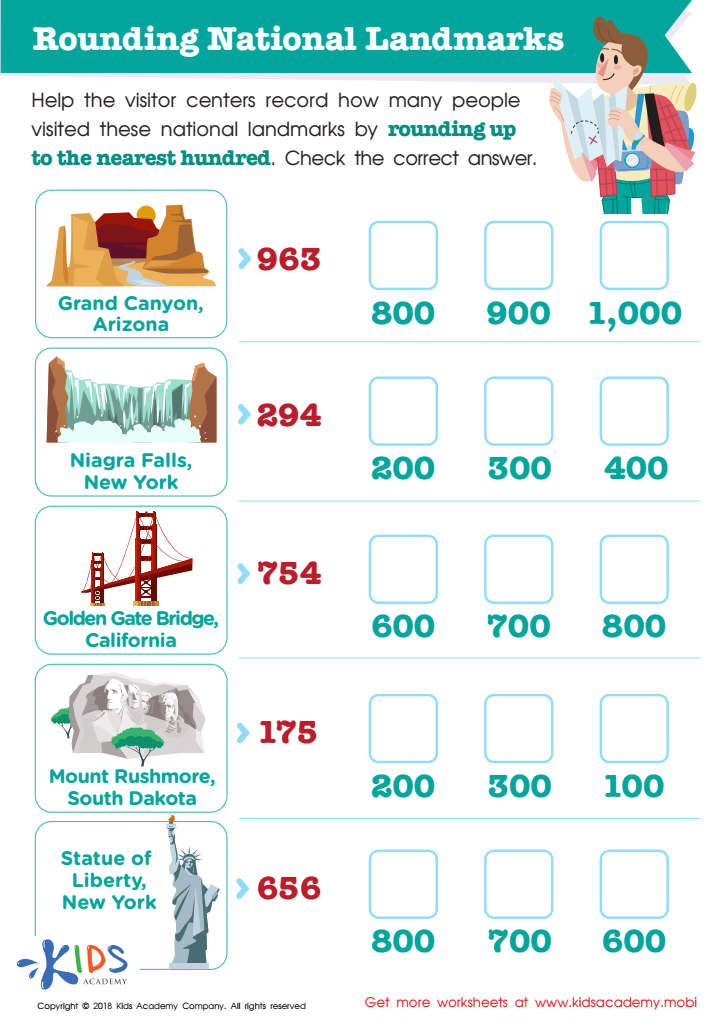

Rounding National Landmarks Worksheet
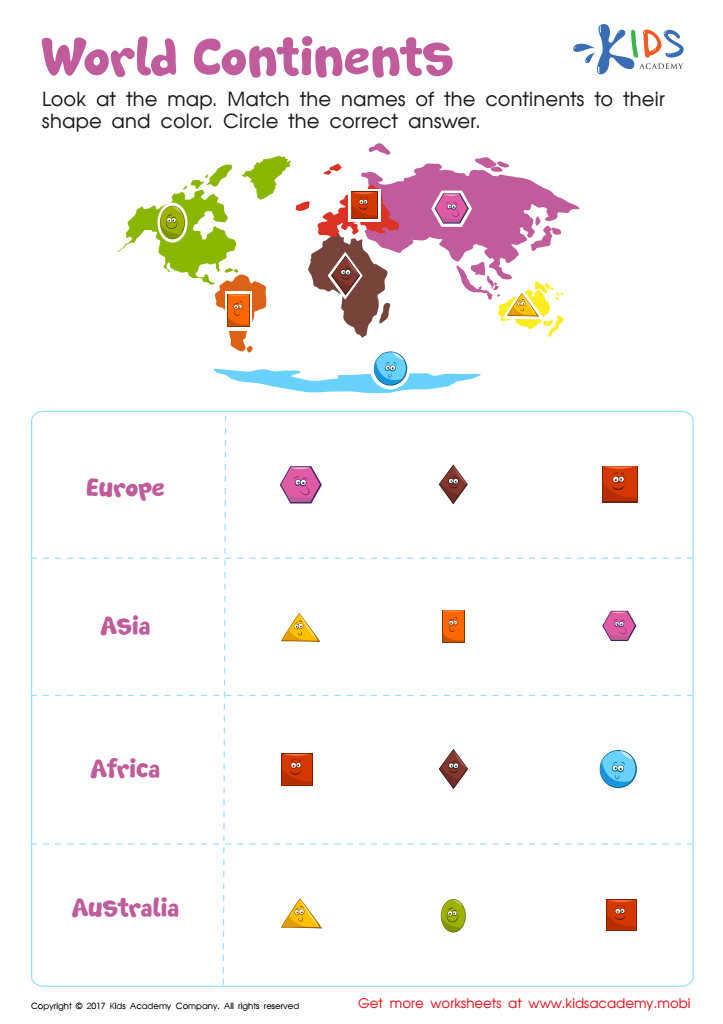

World Continents Worksheet
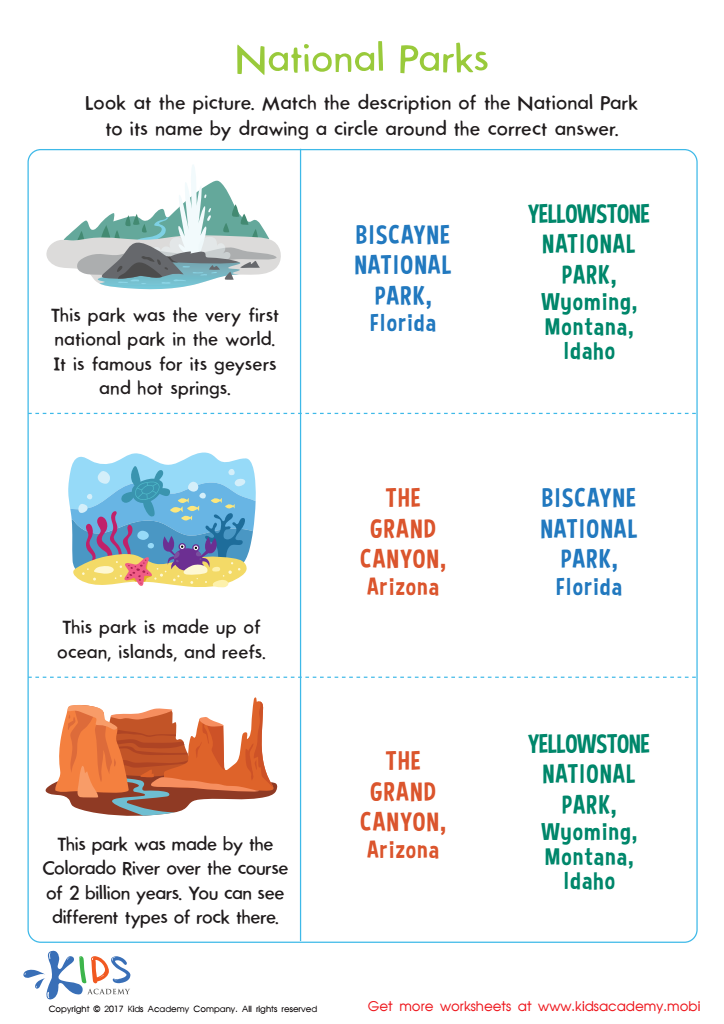

National Parks Printable
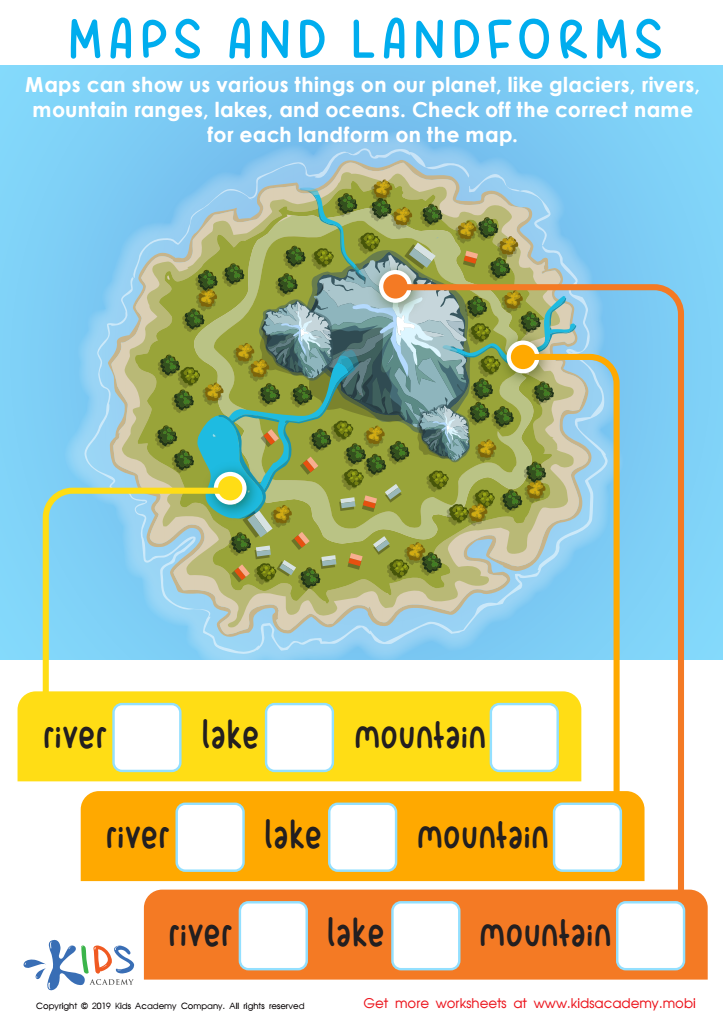

Maps and Landforms Worksheet
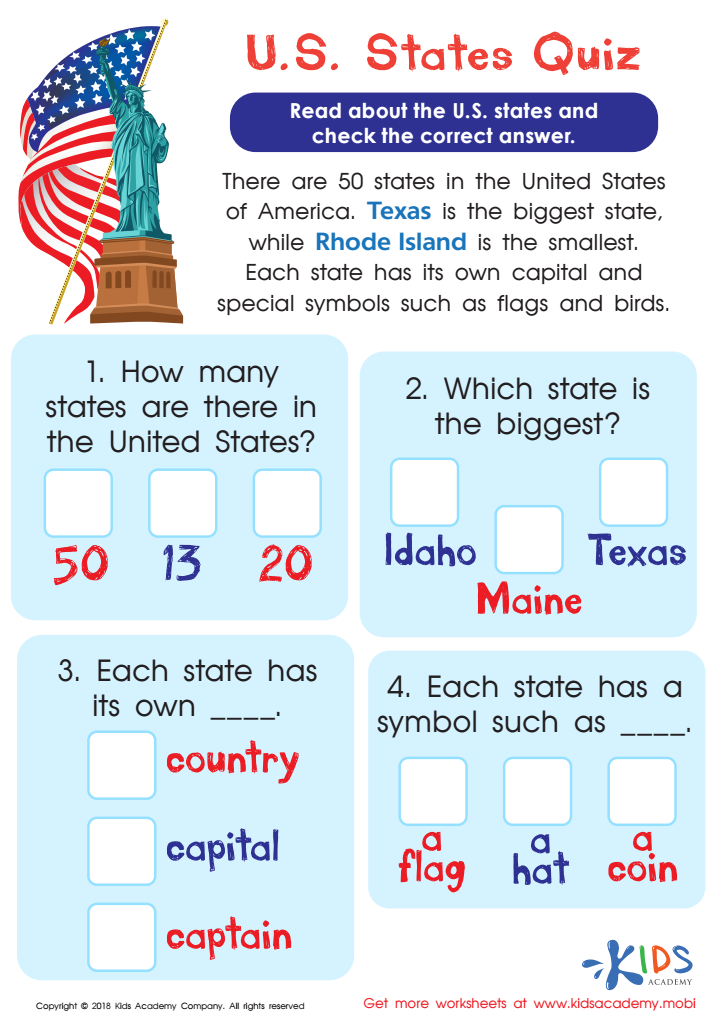

U.S. States Quiz Worksheet
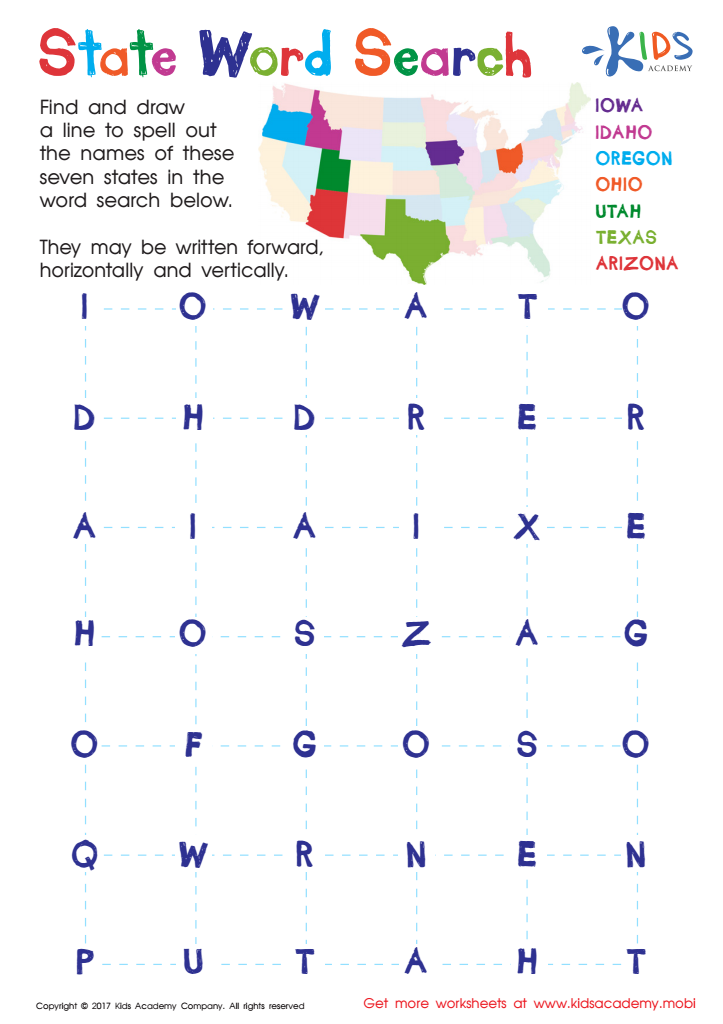

State Word Search Worksheet
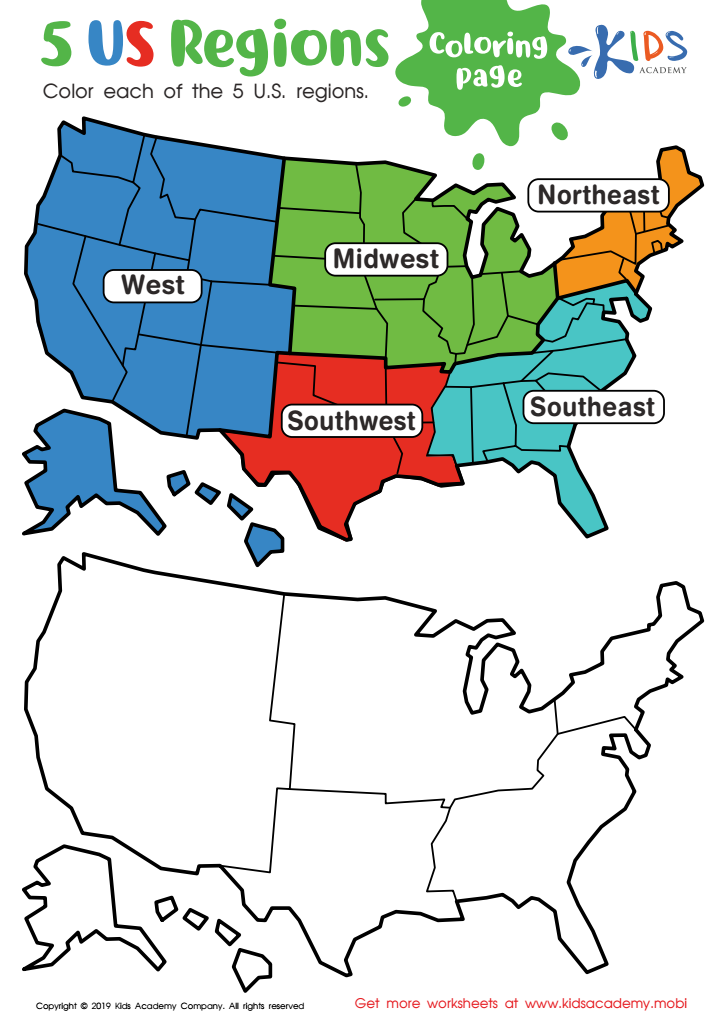

US Regions Coloring Page Worksheet
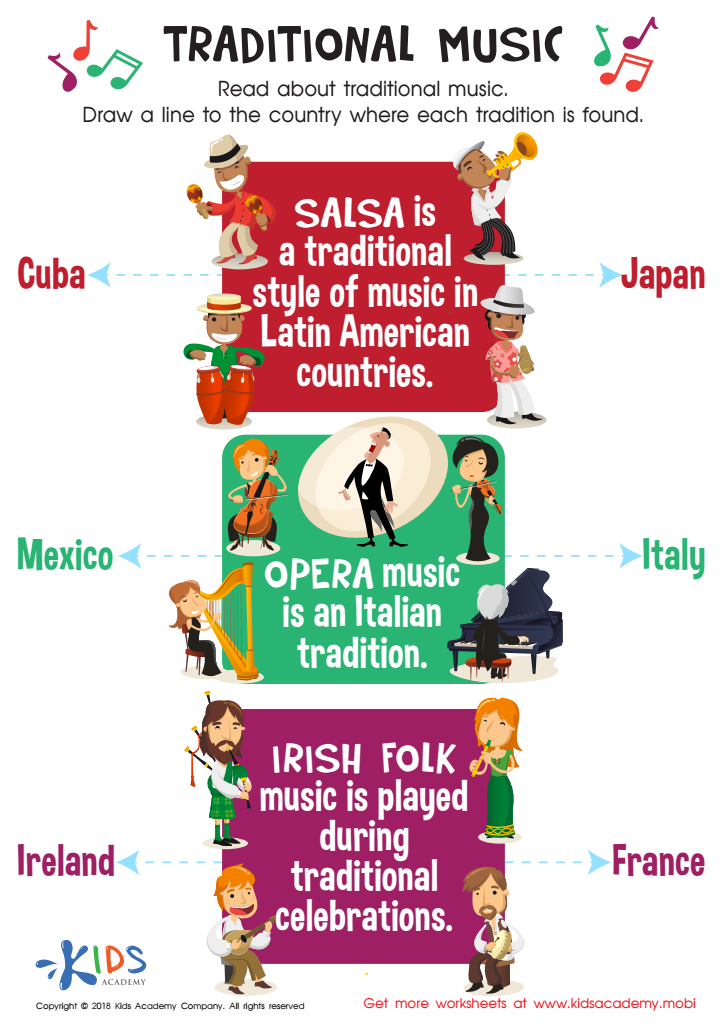

Traditional Music Worksheet
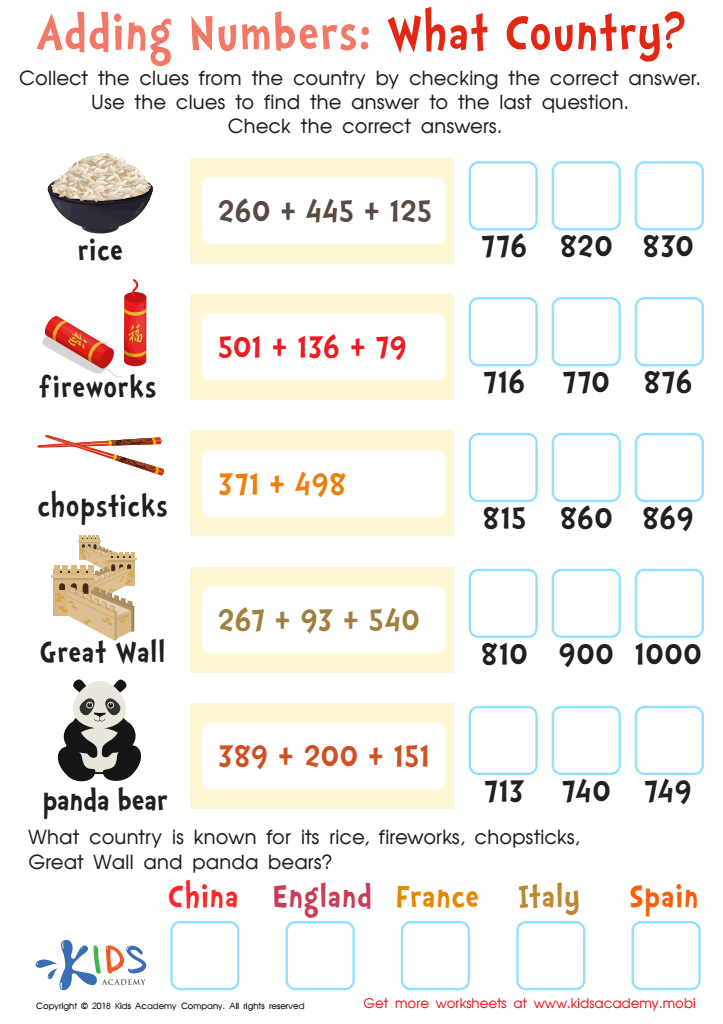

Adding Numbers: What Country Worksheet
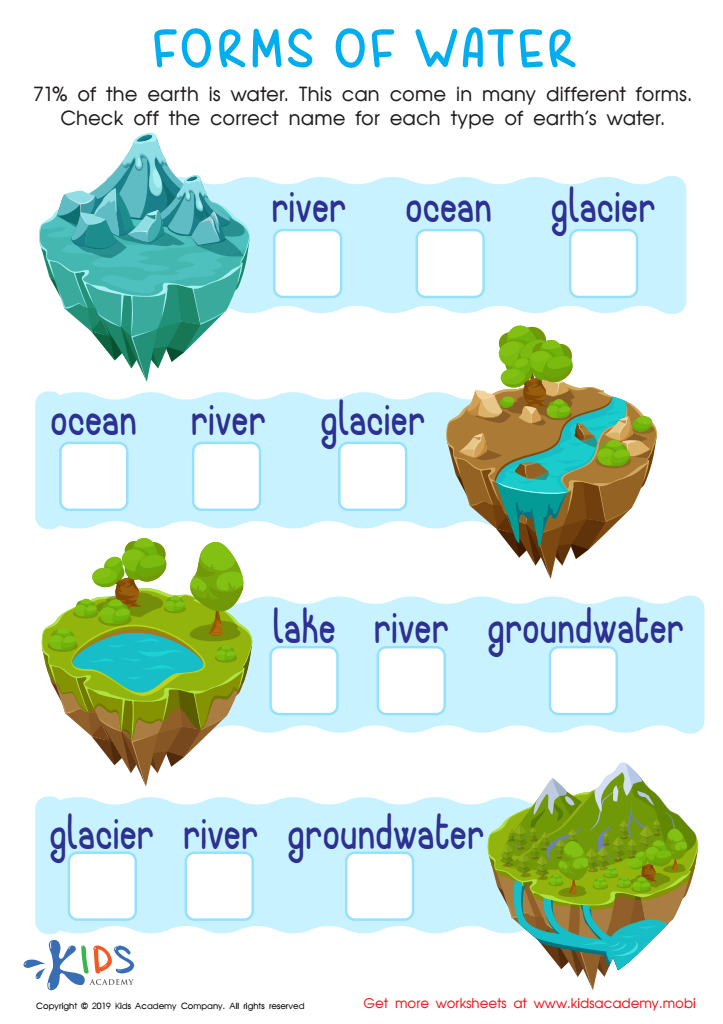

Forms of Water Worksheet
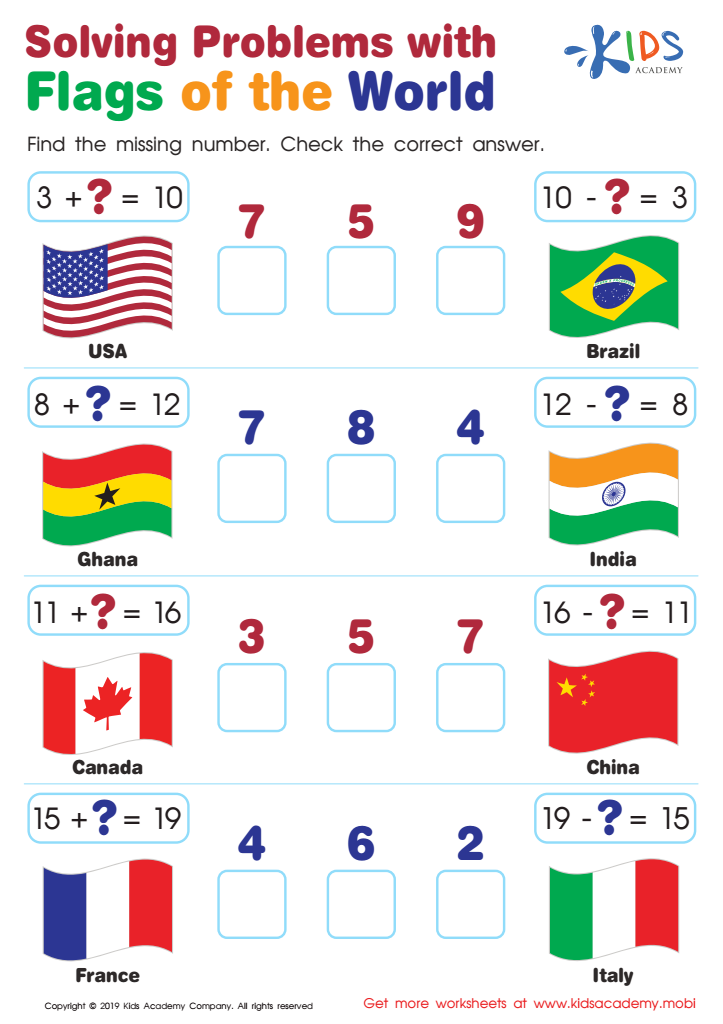

Solving Problems with Flags of the World Worksheet
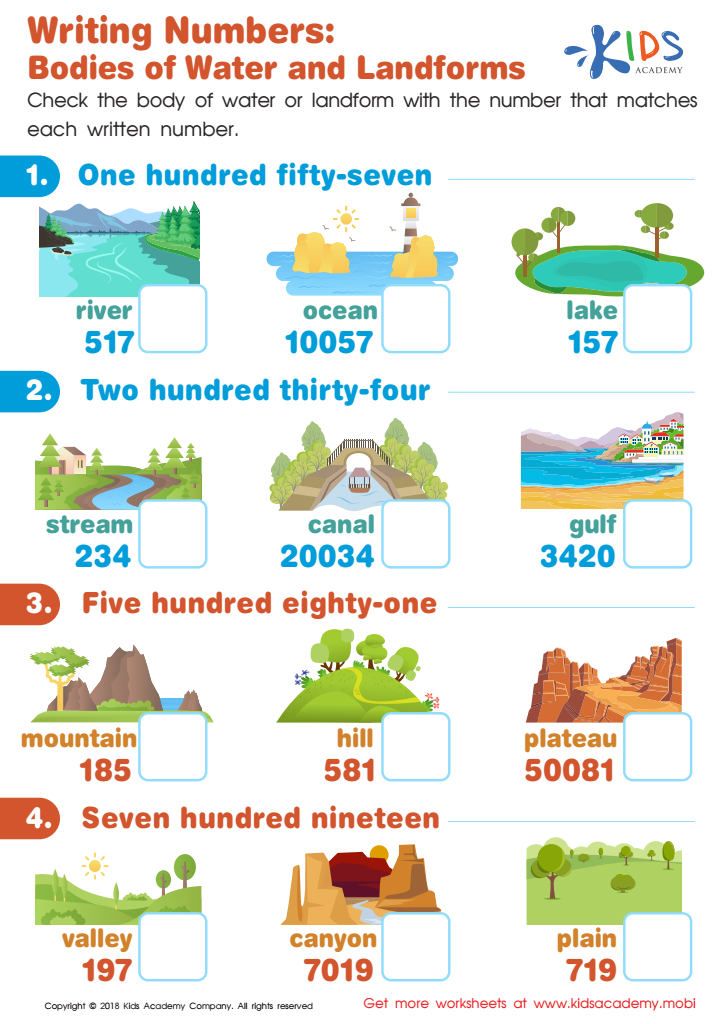

Bodies of Water and Landforms Writing Numbers Worksheet
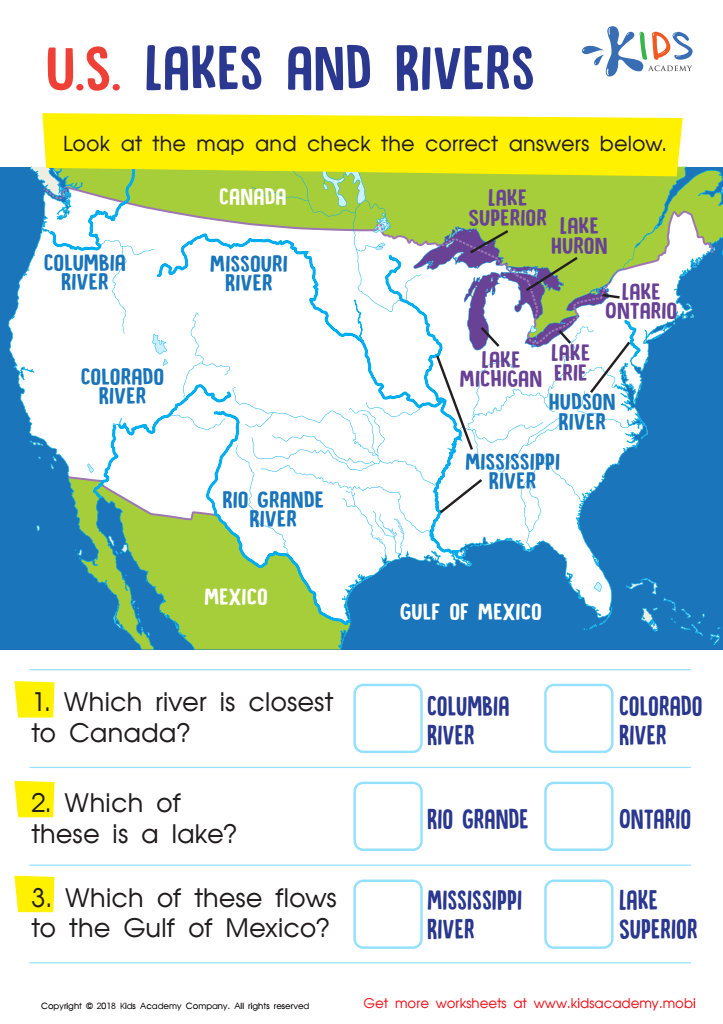

U.S. Lakes and Rivers Worksheet
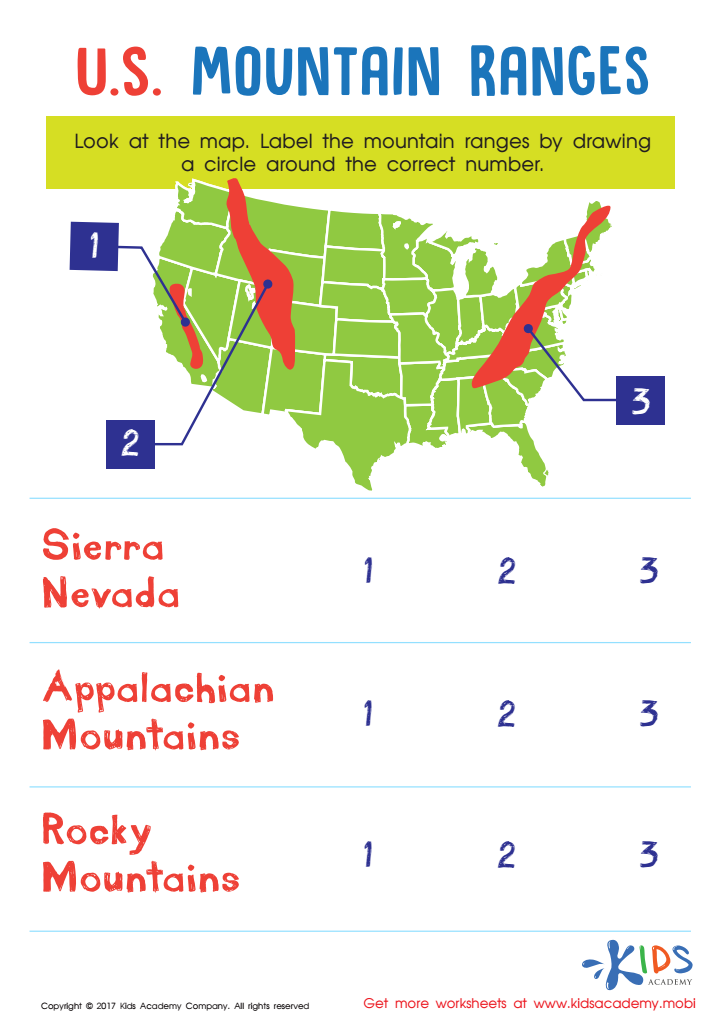

US Mountain Ranges Worksheet
Parents and teachers should prioritize geography knowledge for children aged 5-8 for several compelling reasons. Firstly, geography helps young learners understand the world around them. By familiarizing themselves with maps, landmarks, and different cultures, children develop a sense of place, which is vital for their cognitive growth and spatial awareness.
Moreover, geography lessons encourage curiosity and critical thinking. As children ask questions about where they live and discover how different regions are interconnected, they learn to think analytically about their environment. This knowledge fosters a sense of responsibility toward the planet, instilling values of sustainability and appreciation for diversity.
Additionally, understanding geography can enhance social studies and environmental awareness, forming a foundation for global citizenship as children grow. It prepares them to think about global issues, such as climate change and cultural diversity, leading to informed and empathetic individuals.
By fostering geography knowledge at an early age, parents and teachers play a crucial role in equipping children with the skills necessary to navigate an increasingly interconnected world. This foundational understanding will benefit them intellectually, socially, and emotionally as they progress in their education and develop into informed adults.
 Assign to My Students
Assign to My Students
